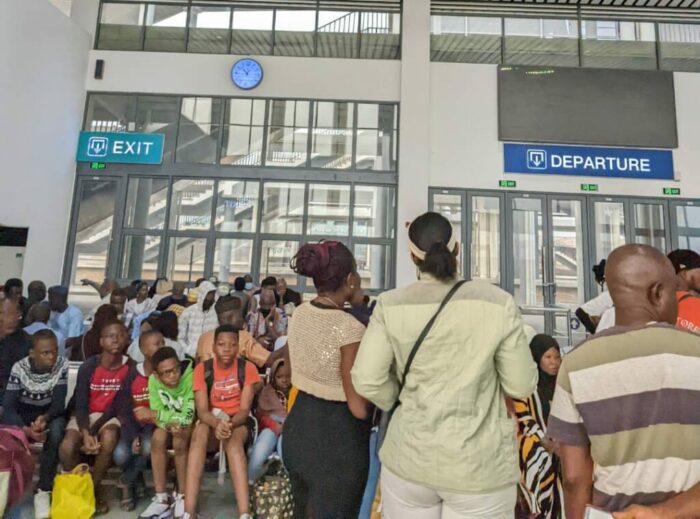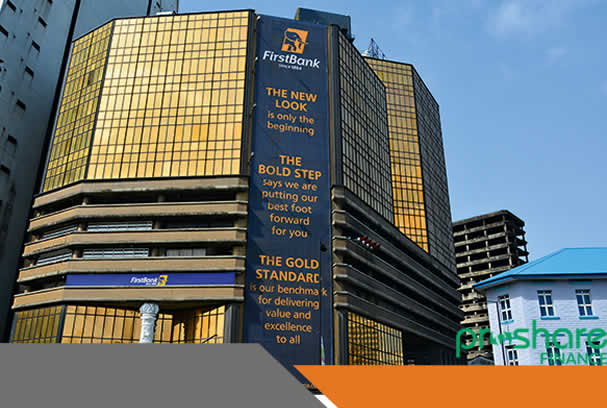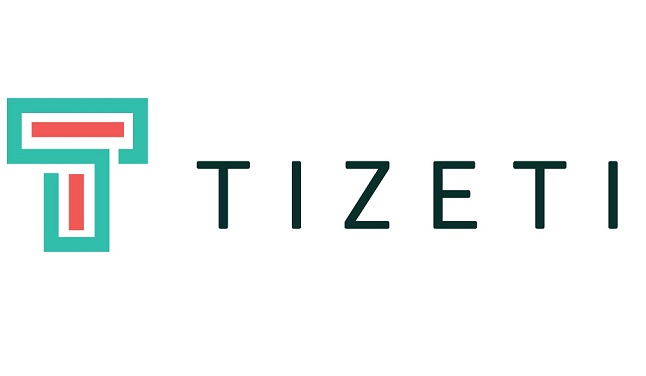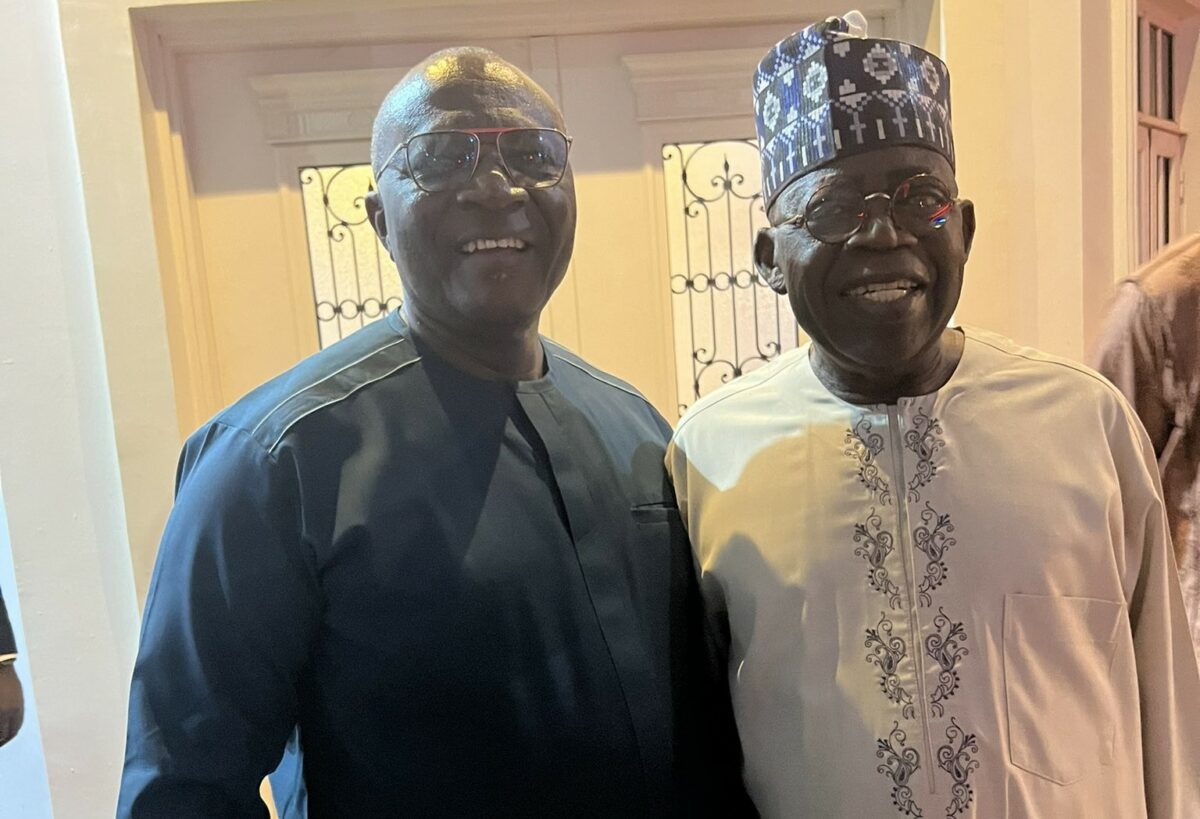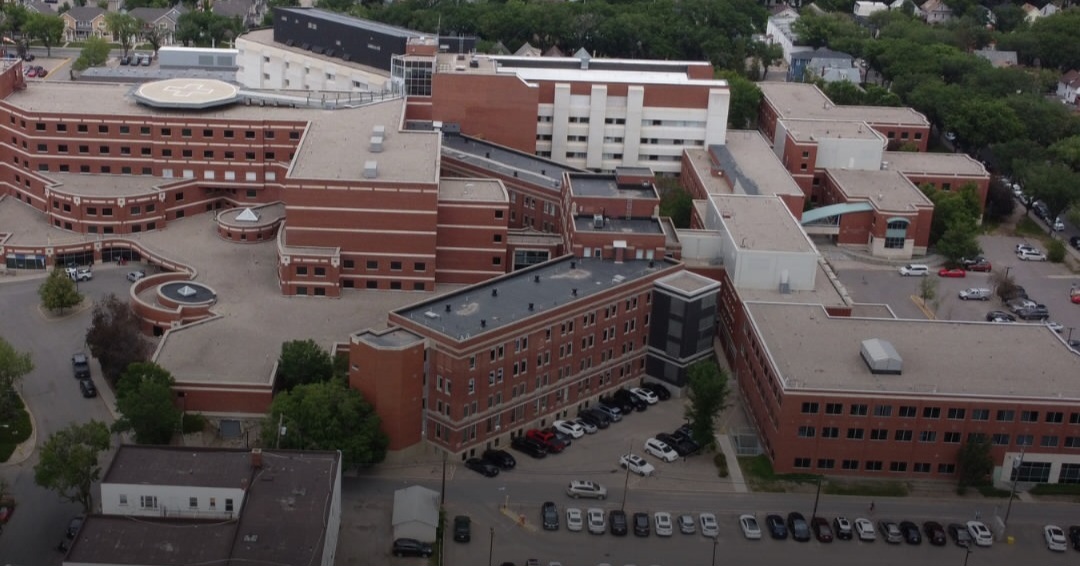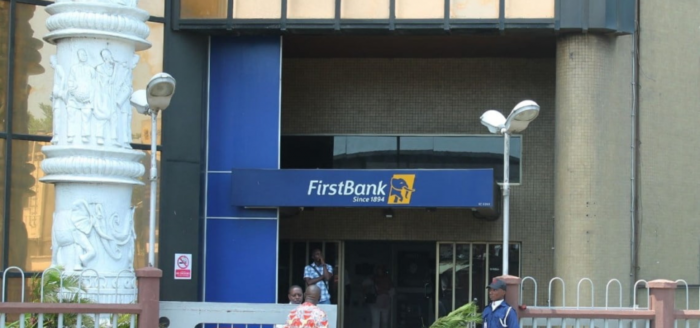The Lagos Ibadan Rail Line service (LIRS) was meant to be a breath of fresh air for Nigerian train lovers, especially since it connects three major cities in the southwest: Lagos, Abeokuta and Ibadan.
However, since its launch, a series of allegations related to corrupt practices and extortion have rocked the rail service.
Our reporter took a train ride from Lagos to Ibadan and back on two occasions to verify these claims.
ALAGO-MEJI, LAGOS
On December 24, hundreds of travellers at the Mobolaji Johnson terminal, Alago-meji, Yaba, Lagos, were stranded after officials of the NRC at the terminal announced to passengers seeking a seat on the 8:00 am train that tickets had been exhausted. This was around 7:00 am.
The queue of travellers with their bags and boxes waiting to purchase their boarding tickets extended from the ticketing area to the entrance of the Mobolaji Johnson terminal.
“Everyone is travelling today. It’s Christmas Eve and there is a surge,” a passenger exclaimed.
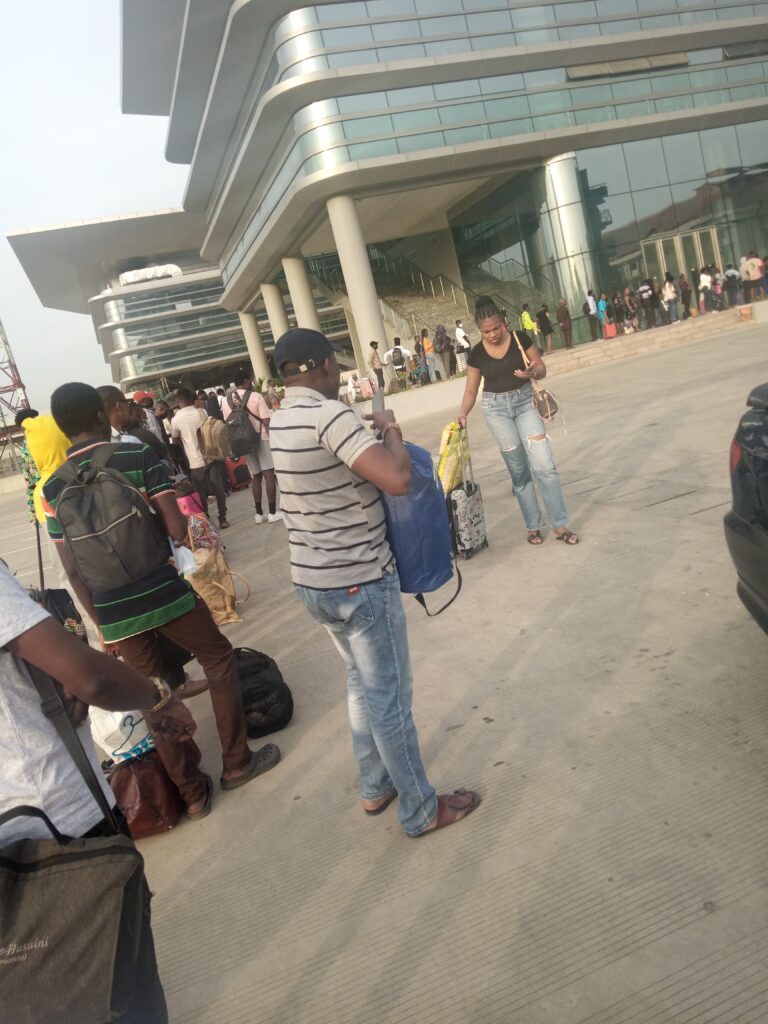
More passengers trooped into the terminal. Some dragged their bags behind them while some had their children at their skirts.
“The officials said the tickets had been exhausted and we were to wait till 4 pm,” a traveller was quick to tell those trooping in.
“If the 8 am train is yet to arrive, then there should still be some hope for us,” one of the newcomers said.
An official who emerged from the ticketing area signaled to us. Everyone scrambled to hear what he had to say with some hopes that they could get a ticket on the train which warming sound announced that it was ready for take-off.
“We are arranging for a separate coach which can only convey 88 passengers, but the challenge we have is how to identify which of you would be among the 88 since there are so many of you,” he said.
Everyone rushed to be among the 88. People pressed against one another as they fought to gain entry to the ticketing room. The crowd became disorganised and pushed against one another.
“You must attend to us first – me and my kids,” a woman with four children shouted.
“I am an old man and need to meet up with an appointment in Ibadan,” countered a man in the Yoruba buba and sokoto.
“I have been here since 6:00 am, and when I arrived, they said they wouldn’t sell tickets until 6:30 am. Now see what has happened,” another young man complained bitterly.
Things became more disorganised despite the numerous appeals of the official for order.
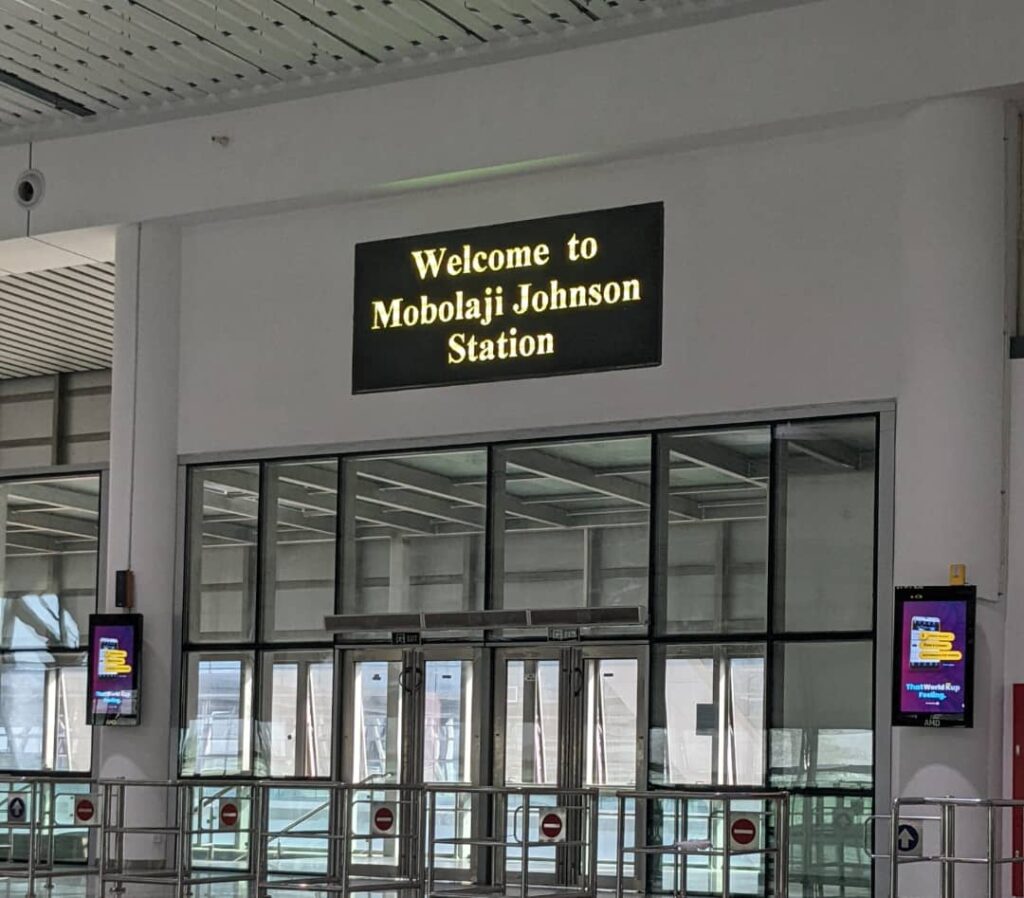
After about 30 minutes, the same official returned to say the NRC had decided to sell travel tickets to Ibadan.
At 8:46 am, I walked through the ticketing area alongside a lady with bulky bags, only to be handed tiny pieces of paper with numbers written on them. “The number is for the 4 pm train. When it arrives, those of you with the number will be sold to first,” the security agent distributing it said, confirming everyone’s fear.
I looked at the cream-colour paper handed to me, the number ’51’ was written on it.
A NINE-HOUR WAIT
The disappointed travellers were led through an elevator into the waiting area. There, you could wait for the 4 pm train or explore other options. I realised it was going to be a long wait as we had about nine hours to dawdle.
The lobby was welcoming. Its silver seats stretched out with ambience and looked ready to make the long wait less torturous.
“Why can’t the Lagos-Ibadan rail line operate a midday service? Having to wait nine hours is torturous,” one Abimbola Ogunyemi told FIJ.
Ogunyemi was traveling with her husband and three girls. It was her first time using the rail service and she couldn’t mask her frustration.
“We got here at 6:30 am but couldn’t buy the tickets. They said it had been exhausted. Is this how difficult train travel can be?” She asked.
“At some point, they asked those travelling to Abeokuta to step out of the line as there were seats for them, but those of us going to Ibadan were asked to stay back.
“I wish I had left with the morning train because we will be arriving in Ibadan late, which is unsafe.
“All the young boys who arrived behind us found their way into the 8 am train. They knew their way around the officials,” Abimbola’s husband said.
“The officials simply wanted us to leave the ground floor. If they allowed everyone to leave, you know how much they would be losing?” he told me.
“They had to keep us here to save their business. But all this could have been avoided if everyone could book online. People won’t come out if they know they didn’t secure a seat on the train.”
‘WE WILL PAY N1,100 OFF YOUR TICKETS‘
The disgruntled travellers explored different options to distract themselves from the long wait. While were busy with their phones, some chatted and connected. Others simply slept.
In the lobby, Tope, a Show Max agent, approached us with an offer to pay N2,500 instead of the N3,600 ticket fee.
The LIRS had sold standard tickets for N2,500 in the past, the business class for N4,000 and its first class for N6,000.
The rail service announced an increment in its ticket fees on December, 6, 2022.
“You only have to pay N2,500 and save N1,100 off your money. You will definitely get your ticket. All you have to do is register by paying N2,500, the old fee,” Tope told me.
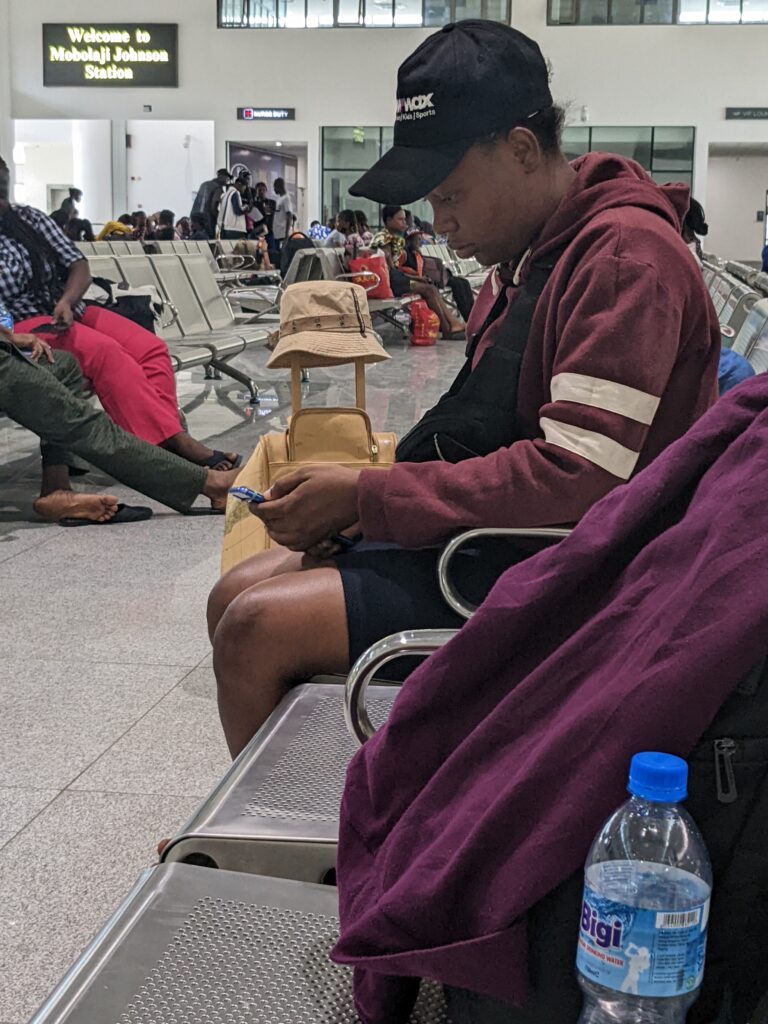
Tope said their agency had a coach which would convey all 88 passengers who bought the tickets from them.
“We have a designated coach on the train. One of our officials is usually on each trip. We also help passengers to purchase tickets from Agege, Omi Adio and Moniya.
“Our offer saves you from queuing for tickets. But you need to sign up on our platform.”
However, on my return trips to Lagos on both occasions, I would observe they were nowhere to be found.
In minutes, the two 44-list manifestoes were filled.
The rail line service stated that its standard class ticket had been increased from N2,500 to N3,600; its business class to N6,500 from N4,000 and its first class to N9,000 from N6,000.
READ ALSO: Terrorists Want N4.3bn to Free Abducted Kaduna Train Passengers
IT COSTS THE SAME TICKET TO STAND
By 3:30 pm, the NRC officials announced we were ready to board. The news was a relief to everyone, especially Abimbola’s husband, whom the long wait had made cranky.
The train took off at 4 pm with safety riding instructions from the broadcast crew.
Twenty minutes later, the nearly full train arrived at the Babatunde Fashola terminal, Agege. Here, almost all the passengers who came onboard had to stand throughout the trip.
“They sold standing tickets to us for N3, 600. They told us they had exhausted their tickets and we could only get on the train if we would stand,” one of the passengers, a young lady who appeared to be in her twenties, said.
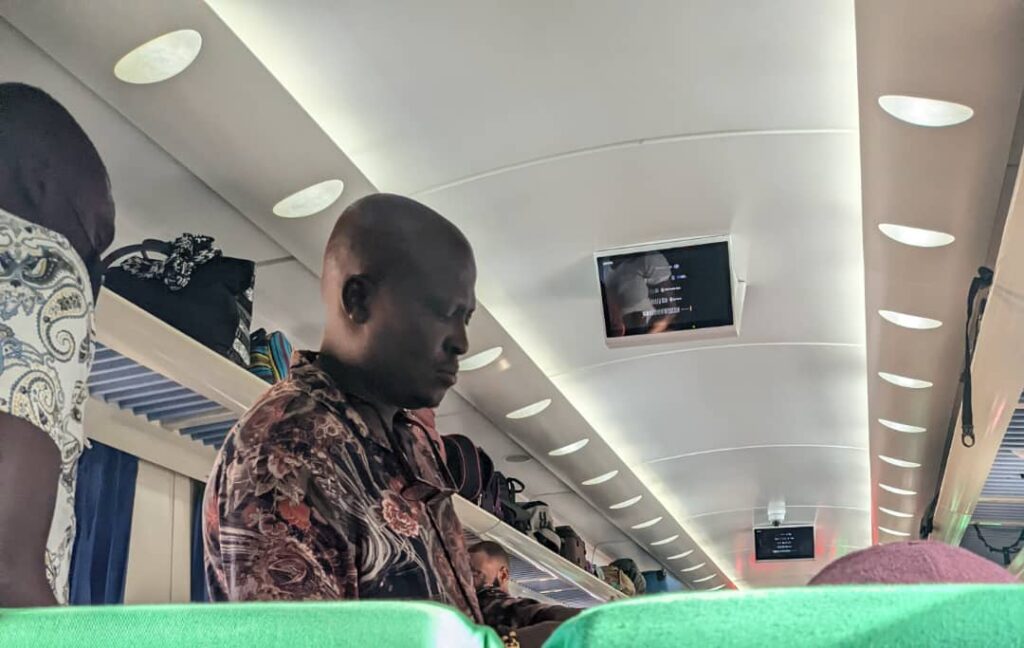
“It is painful when you have no choice and need to be on the ride.”
A short walk to the rear of my coach, I found passengers who had to sit on their luggage or stand by the door for the 2:45 hrs trip.
“The rail line could have been prepared for the surge and maybe provisions made by providing a midday service, but they would rather cramp everyone here,” one passenger said.
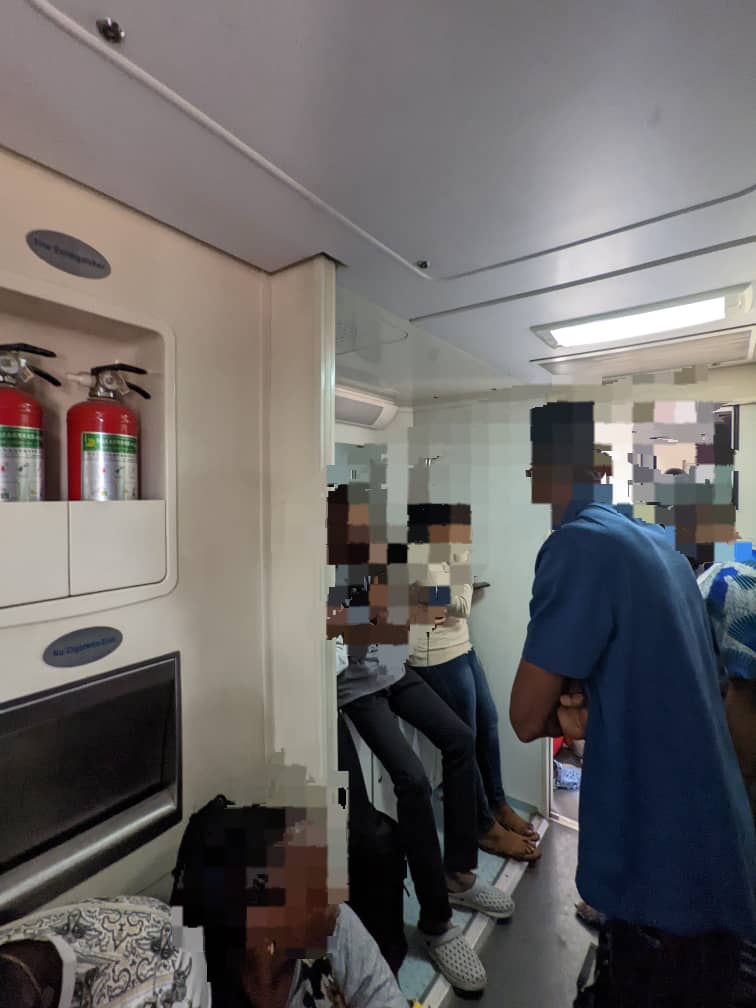
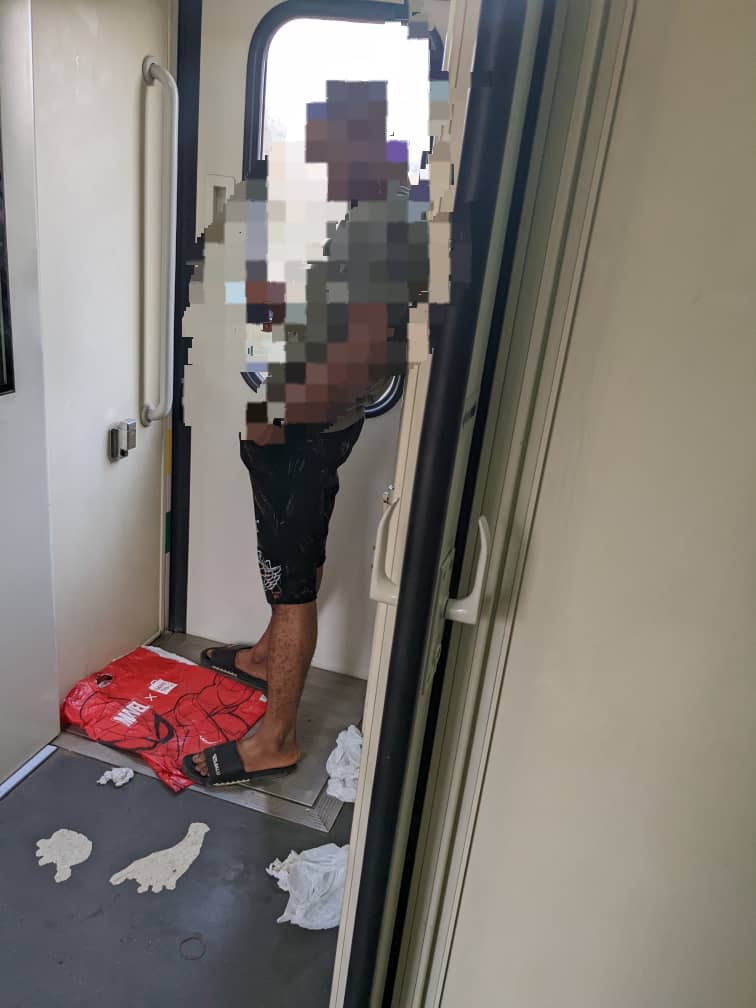
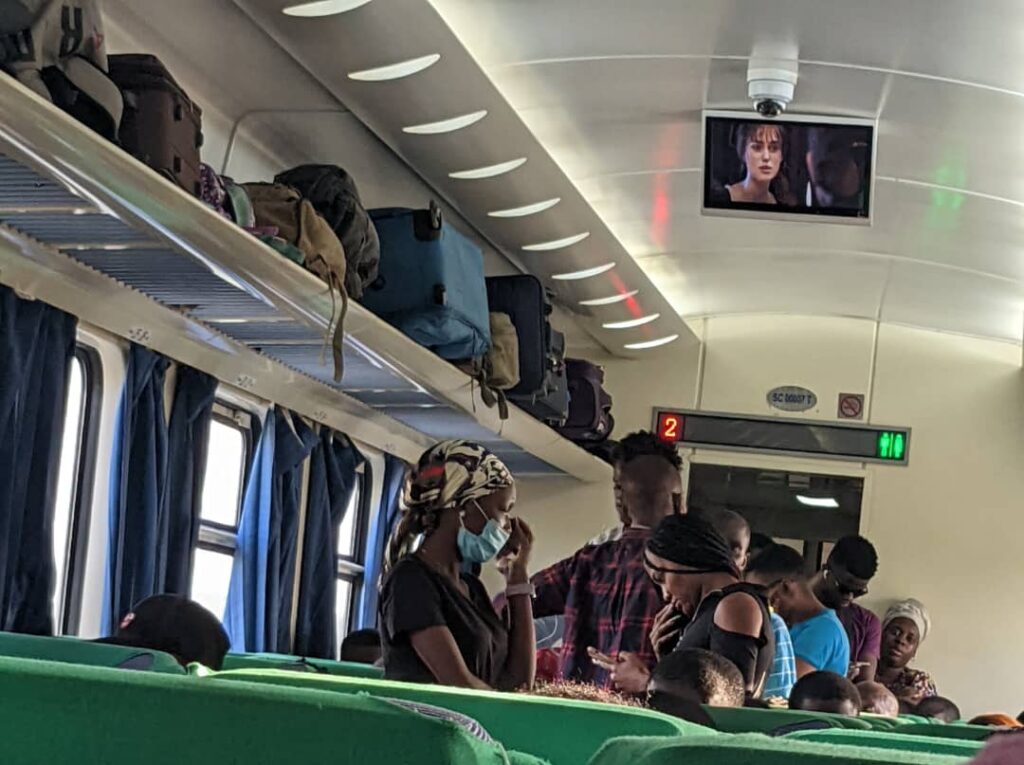
However, some other passengers found a place among the occupied seats and planted themselves there; making the train crowded.
“You know what you did. You should be standing,” an NRC official, who was tasked with the responsibility of invalidating the tickets, told a young man.
The official claimed the young man had taken a seat on the train when he had only bought a ticket to stand.
“I will stand up when the owner of the seat comes,” the young man told the official, but he faced me and said, “The tickets are the same and I also paid N3,600. They issued sitting tickets to those of us standing.”
A request to take a look at the ticket was declined, however.
With each train stop at the terminals in Abeokuta, passengers disembarked but there were still no seats for those standing.
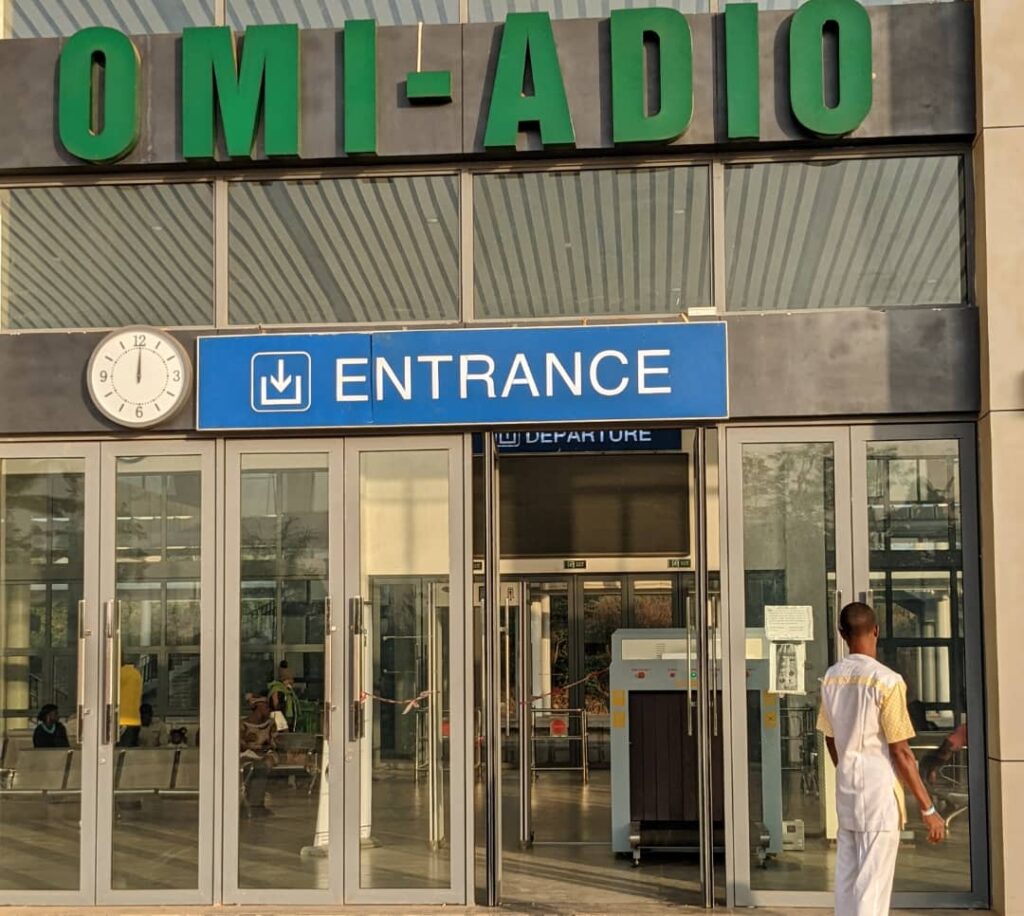
AGEGE – JANUARY 4
The Babatunde Fashola terminal, Agege, stood high in the faint morning fog. I found queues waiting to buy tickets when I arrived there at 6:53 am on January 4. One queue was for those travelling to Ibadan and the other was for those whose destination was Abeokuta.
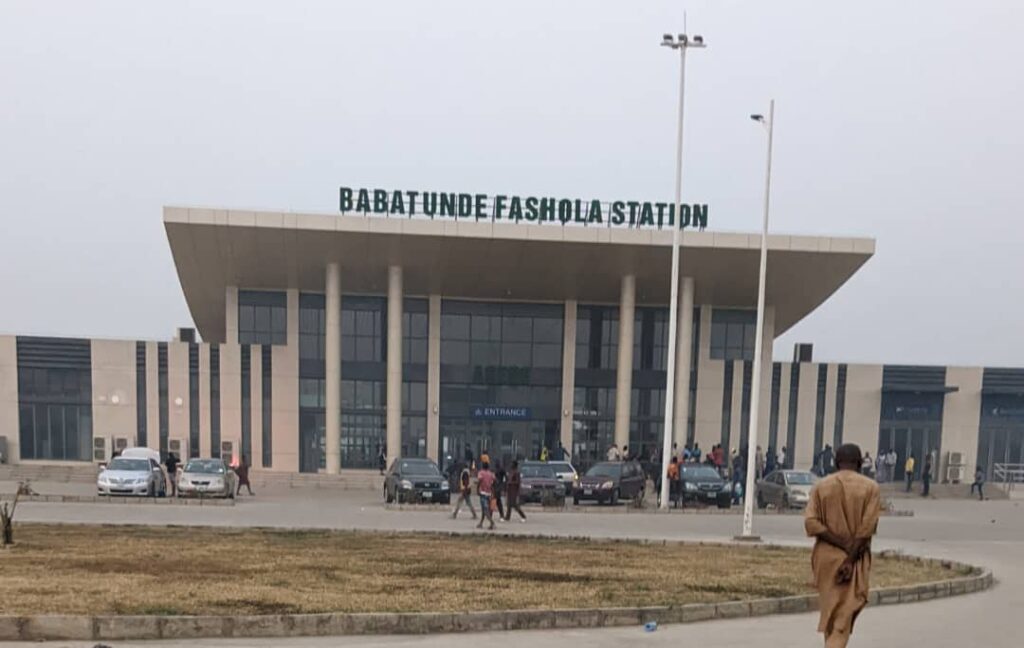
While the travellers waited for the NRC officials to commence sales of tickets, PoS machine operators made good business from passengers who needed extra cash for their trip.
Minutes into my arrival, the doors were flung open to the travellers. It was quick for me to get ahead as I would later find out that about three officials were attending to the travellers.
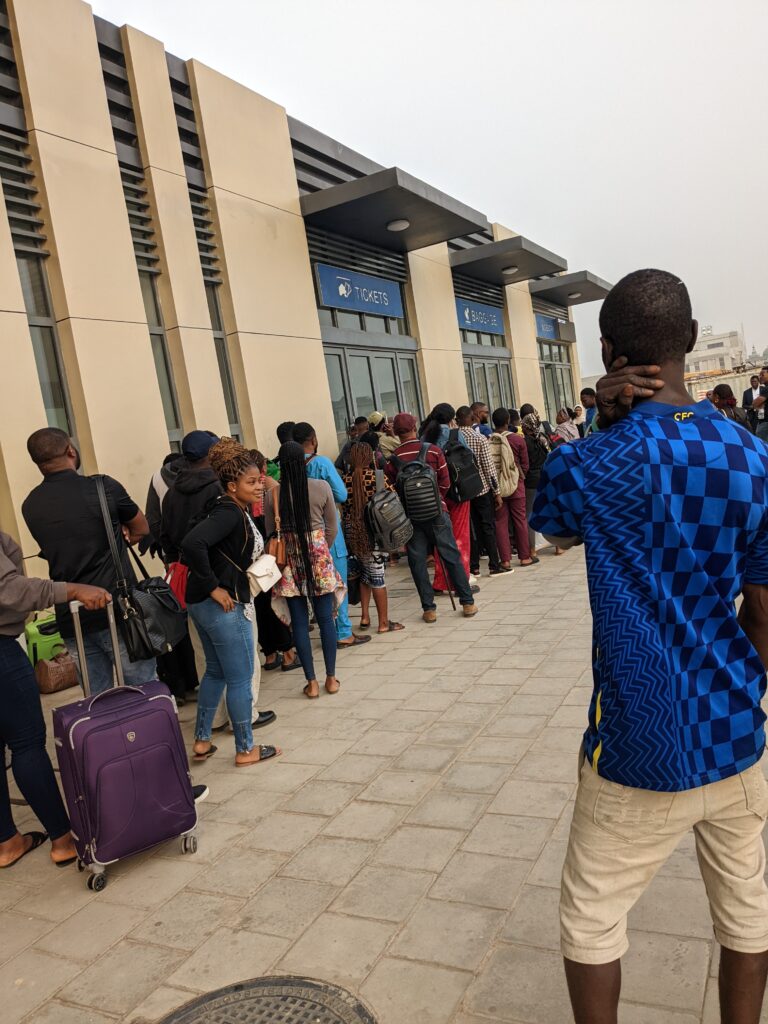
Despite the efficient service, it was soon to get messy as more people arrived and the NRC officials announced they had run out of tickets.
“The officials thought they had enough seats and that was why they sold tickets above their number,” a young man who had come to see his sister off said.
“They have currently resorted to selling standing tickets and most people are not finding it palatable.
“At other times, they would assign a seat to different passengers and leave them to sort it out.
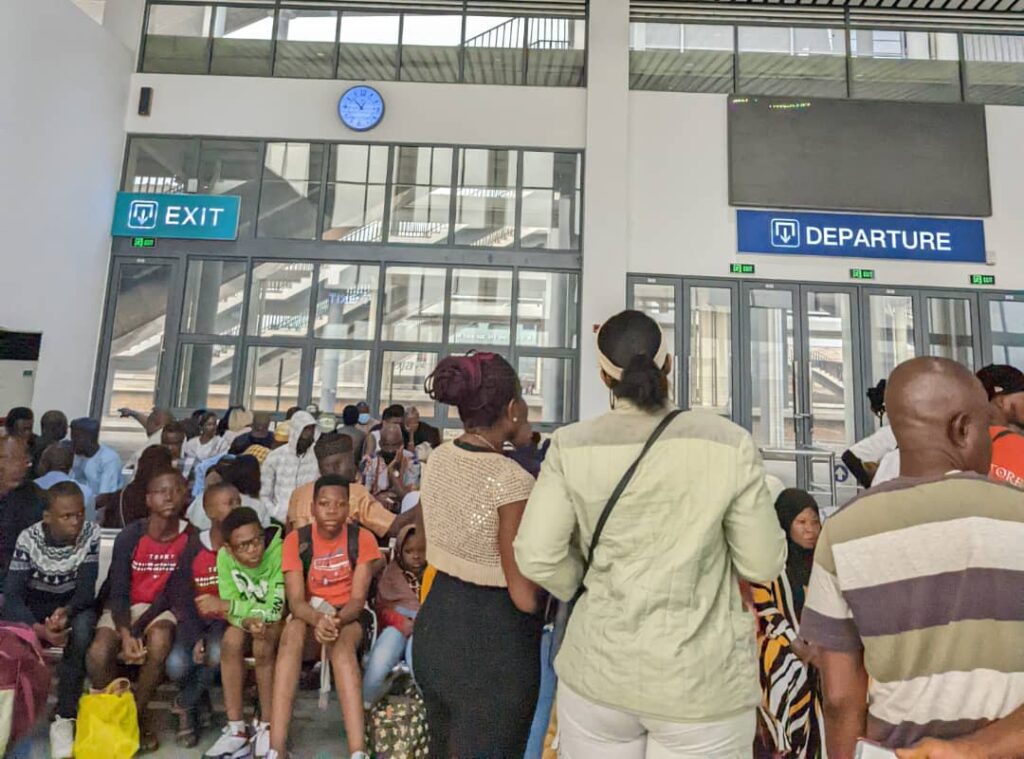
“This is why the need to enable e-ticketing. When people can book online, they would know the number of passengers to expect. They can as well ensure there is a real-time communication system among all the terminals so they can have the accurate number of passengers boarding.
“The online booking will be first come, first serve. No one will have to struggle to buy tickets at the terminal.”
The solution the officials could provide for the increasing crowd was to sell standing tickets for a 2:45 hrs trip.
READ ALSO: EXCLUSIVE: Bandits Received N200m Ransom to Free Latest Abuja-Kaduna Train Abductees
E-TICKETS OR NOT?
Onboard, Ayo Olapade (not real name) a startup developer, stated that the federal government lacked the capacity to operate e-ticketing for the Lagos-Ibadan rail service.
“They can’t operate an e-ticket service because they will run into debt. What if the train develops a fault? Do they have a system to back up when they default?
“It is not so easy, especially if they have been cornering some of the train funds. E-ticket implies they will no longer access it.
“E-tickets will resolve most of the logistics problem they have but they lack the structure to run it. It simply won’t work in a nation like ours.
“There is no way to manage such sophisticated system.”
MONIYA, IBADAN
Before the train arrived at the Obafemi Awolowo Terminal in Ibadan, dozens of cabs and motorcycles had readied themselves for the travellers.
As soon as the travellers emerged, the drivers and riders were quick to accost them. Each driver cavassed for his own passeneger.
Ade Yussuf (not real name), a motorcycle operator I hailed for a trip to UI, insisted on N1,500 as fare. I disagreed but he was insistent. I would later realise that the fare had been hiked due to extortion by some people managing the terminal.
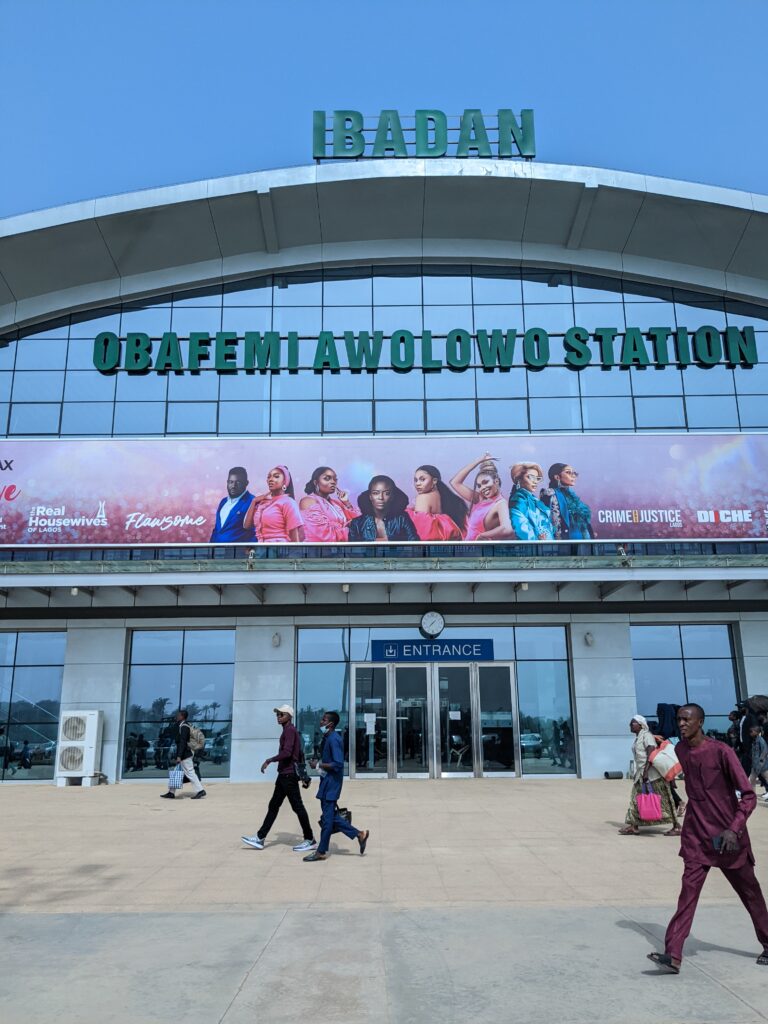
“I can’t carry you for less than N1,500,” Yussuf told this reporter.
“I’ll have to pay N200 or more fee on each passenger I carry and I also have to take money home.”
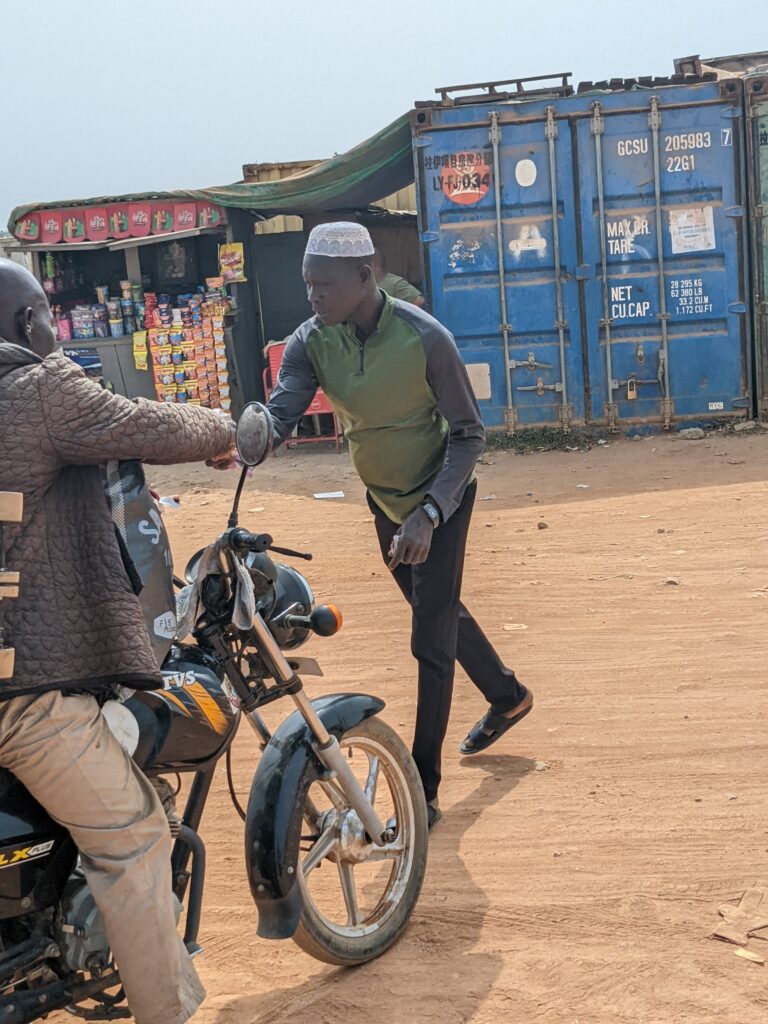
Yussuf said certain groups had taken it upon themselves to tax the motorcycle operators for each trip they made.
“See that man over there; you can’t leave with any passenger unless you pay him. It is tiring but I also want to do a profitable business,” he said.
FIJ’s numerous attempts to get the LIRS to comment on the findings were futile. All messages sent via email, Twitter and texts had not been responded to at press time.
Subscribe
Be the first to receive special investigative reports and features in your inbox.


